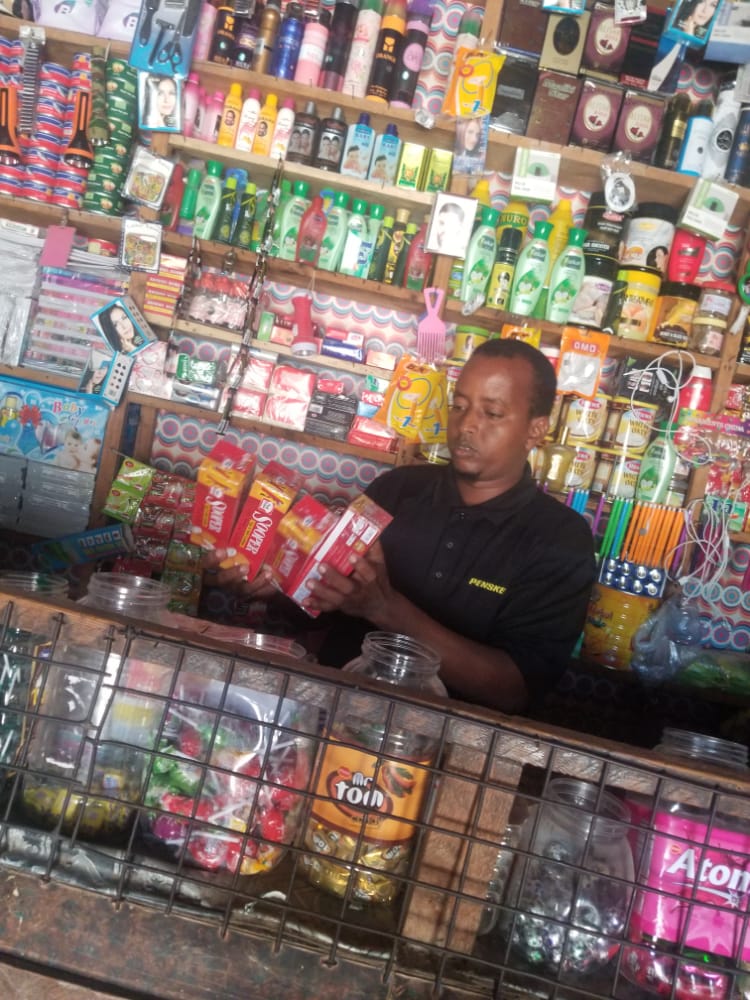More than 7.1 million people in Somalia have been affected by the historic levels of drought in Somalia following the fourth consecutive failed rainy season. Multiple shocks including the COVID- 19 pandemic have slowed down the country’s recovery and its economic growth. As a result, the majority of the people living in the various regions in Somalia continue to struggle with extreme poverty, acute food insecurity, significant loss of livelihoods, poor-living conditions and income inequality.
Kismayo is the third largest city in Somalia. It once served as a commercial hub for products from the region’s pastoral, fishery and agriculturally productive lands. These are now the least vibrant businesses due to the decades-long humanitarian crisis caused by conflict, instability, recurrent weather shocks, and disease outbreaks. Due to this, people don’t have access to investments, talents, technologies, or other resources. Kismayo now hosts large numbers of internally displaced people and returning refugees.
Small business owners in the city, who are trying to find livelihood sources in entrepreneurship, are struggling to survive in the market in light of the drought and COVID-19. Many businesses face similar financial challenges key among them being limited access to business capital or credit from the lending institutions to facilitate growth or business expansion, illiteracy, and lack of information to mention but a few.
Kismayo Economic Empowerment Project (KEEP)
Nomadic Assistance for Peace and Development-NAPAD has implemented an Economic Empowerment Project in Kismayo with funding from Deutsche Gesellschaft für Internationale Zusammenarbeit (GIZ). The project aims at strengthening the inclusion and resilience of smallholder businesses to evolve into decent income-generating opportunities.
The project supports small business holders in Kismayo to access entrepreneurial skills and financial resources to sustain and expand their businesses. The project provides continuous mentoring and financial advice on business planning, marketing strategies, how to approach suppliers and financial institutions, adoption of voluntary saving and loans culture among beneficiaries and supporting businesses adhere to local government authorities’ policies.
It also creates linkages and partnership-building between project beneficiaries and various microfinance institutions which allow them access to business credit to sustain and expand their income-generating activities.
Abdullahi Jelle Dakane’s Thriving Grocery and Retail Shop

Abdullahi Jelle Dakane is a 45 years old businessman living in Haji Jama, Kismayo where he owns a grocery and retail shop and is one of the beneficiaries of the economic empowerment project. Abdullahi alongside 60 other business owners in his cohort has received in-depth training in business and financial management, product and service value addition and marketing. The project has also facilitated conversations between the beneficiaries and financial institutions, suppliers, and their available markets which are meant to improve the business sustainability amid various shocks affecting these businesses.
“I’m glad that I can now keep track of my daily business transactions, maintain my stock, and I can manage my business effectively,” Says Abdullahi
Previously, Abdullahi had been struggling to run his then small business. He frequently struggled to pay rent, transport, and restock his small shop. He could not also access loans from microfinance institutions due to the high conditions they set for those who need to take out loans. These constraints took a toll on his mental health since he did not want to lose his only source of income.
As a result of the link created between the business owners and the financial institutions by NAPAD, Abdullahi took out a loan from Dahabshil bank in May 2022 which he used to increase his business stock and additionally diversify his business. He now sells a variety of goods, including food items, hair products, toiletries, stationery, and torches, among other things. All of these have increased his income and he can repay his loan in regular monthly instalments. He also reported that he is now able to provide for his family efficiently and pay school fees and dugsi fees for his children.
“I’m happy to have gotten a loan from Dahabshil Bank and now I will be able to invest more in my business,” Reports an enthusiastic Abdullahi.
“ I am also really grateful to NAPAD for their continuous mentoring which has allowed me to grow my business.” He added
